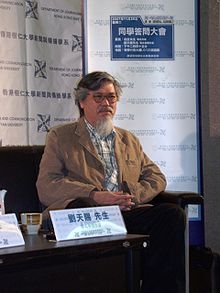17 April 19
To create is to think out of the box and rock the conventional boat. But, a great idea will remain as an angel in the air if it does not spark off a chain of actions―draw up your thought, gather a group of teammates, present the proposal to investors or customers, execute the plan and convince others to change when the reality turns not to be a piece of cake. All these demand your ability to explain, persuade, defend or even challenge when communicating. Worst of all, inability to articulate can be like getting out of bed on the wrong side and things will never get off to a right point when people along the way were not convinced by what you said.
It is almost an egregious error not to understand the common purposes of communications:
- casual talks, the purpose of which to make friends or reinforce friendship;
- pitch talks, the purpose of which is to sell an idea or product;
- public speech, the purpose of which is to lobby or influence;
- debate, the purpose of which is to defend or win an argument; and
- negotiate, the purpose of which is to induce the other side to give-and-take.
Except for (1), you are in a ‘combat’ situation for the other 4. You have to work soberly and savagely to force yourself to get ready: the appropriate and effective context, content, length, vocabulary, tone and tempo. It may not be an easy task but: no pain, no gain. You continue thinking and whirling into the loop of:
- who is your target and, what he will like or dislike;
- how well you know the subject matter in issue;
- what story, especially with a touch of humour, that you will add to brighten your communication;
- talk confidently, enthusiastically but sincerely;
- while you talk, you should pause at intervals in order to gauge the reaction of the other side;
- avoid using cliché expressions as the audience will wince at your cliché because they are so ‘ancient’ that they have lost all effectual meaning (such as ‘it is my honour and pleasure to…’ and ‘last but not least’ etc.); and
- finally, for an important talk, do consult your colleagues or friends as they can be more objective and give you advice.
For communication, there is no free lunch. Lack of hard work is of course like paying peanuts and getting back monkeys. No wise man has the tolerance to appreciate what you will tell. Plato once said, “Wise men speak because they have something to say; Fools because they have to say something.”
This article can also be found at the following sites:











